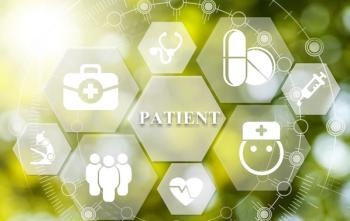
What You Need to Know About Apple ResearchKit
ResearchKit is Apple’s foray into clinical research based on the backbone of its HealthKit, released in June 2014, which offered the ability for health and fitness apps to communicate with each other. mHealth News reported Apple CEO Tim Cook said, “As we worked on HealthKit, we came across an even broader impact that iPhone could make, and that is on medical research.”
Last week, Apple unveiled
ResearchKit is Apple’s foray into clinical research based on the backbone of its
With the launch came five apps developed with ResearchKit. They are as follows:
- Asthma Health-developed by the Icahn School of Medicine at Mount Sinai and LifeMap Solutions
- Share the Journey-developed by the Dana-Farber Cancer Institute, Penn Medicine, Sage Bionetworks and UCLA’s Jonsson Comprehensive Cancer Center
- MyHeart Counts-developed by Stanford Medicine
- GlucoSuccess-developed by Massachusetts General Hospital
- Parkinson mPower-developed by Sage Bionetworks and the University of Rochester
According to
And therein lies the potential power of ResearchKit for trial recruitment. As reported in
In addition to the recruitment factor, data collection could also benefit. Because of the features of the iPhone, ResearchKit can request access to an accelerometer, microphone, gyroscope and GPS sensors in iPhone to gain insight into a patient’s gait, motor impairment, fitness, speech and memory. In addition, the compatibility with HealthKit gives the apps access to data such as weight, blood pressure, glucose levels or asthma inhaler use, which are measured by third-party devices and apps.
According to yet another blogger,
ResearchKit Challenges
But as with any new technology, there are potential negatives with ResearchKit, first of which is just with Apple in general. Rahlyn Gossen, founder of
So what are the flaws with ResearchKit? They can be divided into two buckets: exclusion and ethics.
Many blog posts note
After exclusion, the issue of ethics was discussed foremost in this
The five ResearchKit apps do make clear that participant data is not shared with other entities, unless they give their consent at the beginning the study. Additionally, since ResearchKit is open source, it would allow a pharma to develop its own app for App Store download availability-essentially a portal for pharma to gather its own information from iPhone users.
Gossen concluded: “Regardless of what happens with ResearchKit, Apple's announcement is certainly a win for clinical researchers. At the very least, we'll benefit from the greater awareness about clinical research that's been generated. Given the general public's lack of awareness about clinical research, that's something we can all celebrate.”
*thanks to Lynne Nyugen, who contacted me via Twitter @disparityreport, and is Director, Population & Community Core, Center for Community-Engaged Translational Research, MD Anderson Cancer Center, who explained the statistics from the MarketProfs link on iPhone vs Android use. The stats show that the responses are largely from the white respondents, which is representative of overall white, African-American and Hispanic population of the US. Of total Android users, that number is predominantly white. But of the African-American users, they report a preference for the Android.
Newsletter
Stay current in clinical research with Applied Clinical Trials, providing expert insights, regulatory updates, and practical strategies for successful clinical trial design and execution.




